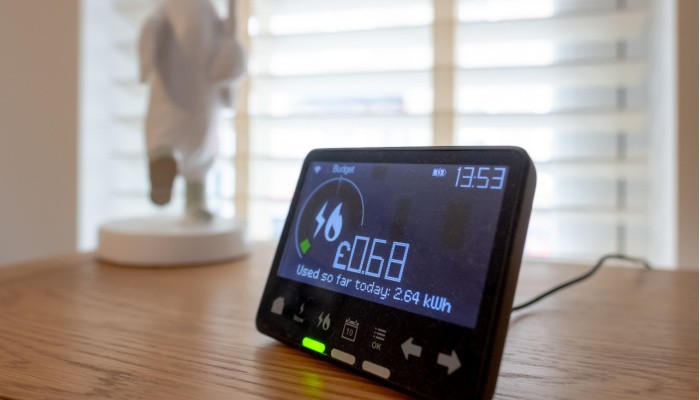Households across Britain have been dealing with ever-increasing energy bills for over a year, thanks to supply problems that were exacerbated by Russia invading Ukraine. While wholesale energy prices have fallen from their peak last summer, this hasn’t translated to lower energy bills yet.
Meanwhile, the UK government is continuing to subsidise household energy bills via the energy price guarantee (EPG). The current EPG of £2,500
was due to end in March, but the Spring Budget included an extension to maintain this level of support for another 3 months (1st April–30th June).
This is good news for employees who work from home, or home-based small business owners, who will have higher energy bills from spending more time in their residence. However, the support is still minimal – read on to find out what’s changing and how it could affect your energy costs.
How is the energy price guarantee changing?
The energy price guarantee (EPG) is a temporary subsidy offered by the UK government to limit the amount that energy suppliers can charge customers per unit. The government reimburses the suppliers for the difference between their capped price and the market price of wholesale energy.
The EPG set the annual energy price cap at £2,500
until 31st March, which was then due to increase to £3,000 from 1st April. However, campaigners warned that a £500 increase on top of winter discounts ending would double the amount of people in fuel poverty from 10%
to 20%.
To try and prevent this, the government is postponing the increase until 1st July 2023, effectively freezing the EPG at its current rate for 3 more months. Therefore, the average annual energy bill for a typical dual-fuel household shouldn’t be more than £2,500 a year while this applies.
While the current EPG remains, customers will not have to pay up to Ofgem’s energy price cap, which is currently £3,280 for this period. However, the EPG only applies when it is lower than the energy industry regulator’s cap, and this is predicted to fall closer to £2,000 in the second half of the year.
Will energy bills go up again?
Unfortunately, despite the price guarantee keeping the current cap on energy prices, many people will still see their energy bills increase from 1st April. This is largely because previous government support schemes have now ended, including the £400 Energy Bill Support Scheme, so those who had been paying a discounted price over the past few months will no longer have this support.
The second factor is that the EPG only caps the price of energy per unit, not energy bills in general – the government’s calculations apply for average energy usage. Your bills could therefore be higher or lower, depending on how much energy your household uses. A well-insulated home that uses less energy will continue to have lower costs than a poorly insulated home with high energy usage.
The government is optimistic that consumers won’t need the EPG as a crutch later in the year, reporting that the Office for Budget Responsibility (OBR)
predicts the UK will not fall into a recession this year as inflation is anticipated to drop to 2.9% by the end of 2023. This forecast should offer some consolation to small business owners who have struggled with rising costs recently.
While the EPG is a temporary measure that will end, Ofgem’s price cap isn’t – it will continue to be updated every 3 months, with the next one due to be announced at the end of May for commencement in July. When the EPG ends on 30th June, consumers will therefore be at the mercy of the Ofgem cap instead – but this is predicted to fall to around £2,100.
What does this mean for you and your business?
The 3 months of extended support for domestic consumers is far less generous than that for non-domestic business customers, who will continue to benefit from the EPG until 31st March 2024. However, saving up to £500 on energy costs is undoubtedly better than nothing.
Energy suppliers should have already notified customers of their new rates as soon as possible, and should correct any inaccuracies after 1st April if they didn’t update your tariff in time. Check your supplier’s website for the latest information, or consult the EPG regional rates for April to June 2023 to help you estimate your energy expenses for this period.
If you’re on a fixed tariff, it’s worth keeping an eye on prices, as a fixed deal could end up being higher than the price cap from July 2023 – making it beneficial to move to a standard tariff if you aren’t locked in to your current deal.
More information on the Energy Price Guarantee (EPG) is provided on the government website.
Every individual and business owner should be aiming to make savings wherever possible, especially if you are a self-employed small business owner who works from their home. Part of this should involve thorough accounting and tax planning – which GBAC can help with.
Contact our accountants in Barnsley to discuss our financial management services today.
